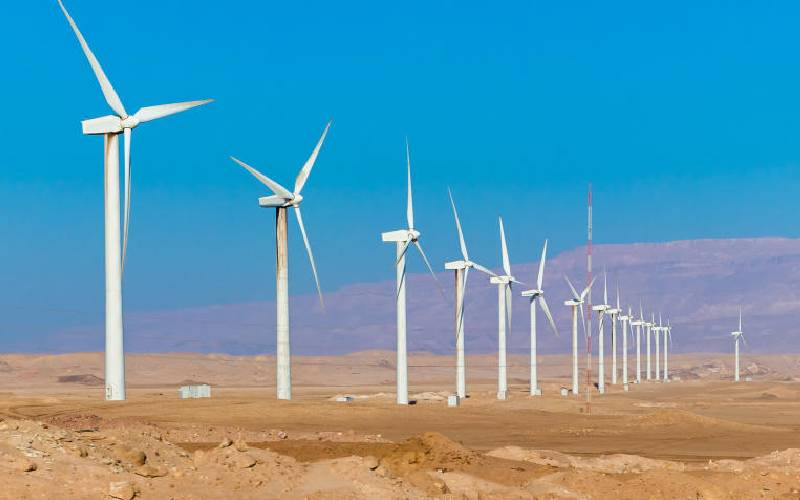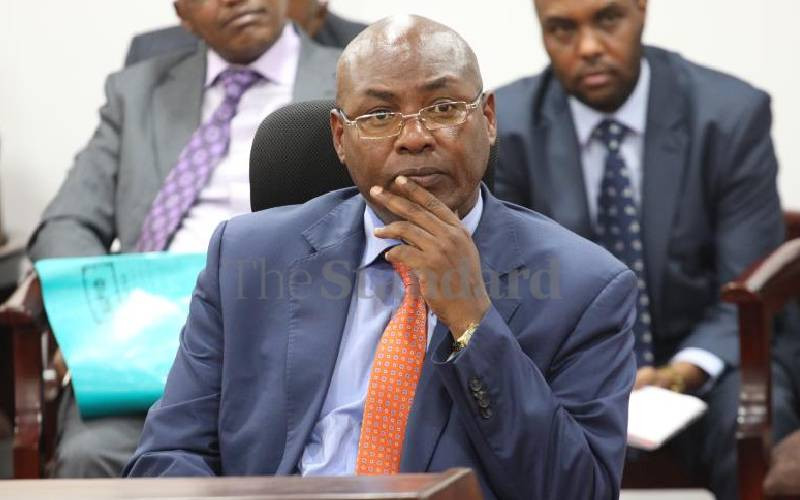
The global shift to the use of renewable energy is gaining momentum. This is after European countries were forced to accelerate their renewable energy capacity when Russia's invasion of Ukraine sparked a global energy crisis.
According to the European, Electricity Review published last month by energy think tank Ember, wind and solar generated a record fifth (22 percent) of EU electricity in 2022, for the first-time overtaking fossil gas (20 percent).
After its February 2022 invasion of Ukraine, Russia slashed gas deliveries to the European Union, plunging the 27-country bloc into a crisis of scarce energy supplies and rising electricity prices.
Until recently, Russia was Europe's largest gas supplier.
"Europe has avoided the worst of the energy crisis," said Ember's head of data insights, Dave Jones. "The shocks of 2022 only caused a minor ripple in coal power and a huge wave of support for renewables. Any fears of coal rebound are now dead."
The report has sparked different reactions from stakeholders in Africa when Kenya is facing possible inflation in electricity supply and a high cost of living.
Kenyan stakeholders in the energy sector stated that the new developments underline the risk that Africa faces of ending up with stranded assets in terms of large investments in fossil fuels energy infrastructure, at a time when Africa also has a huge abundance of untapped renewable energy potential.
President William Ruto in his speech on "addiction to fossil fuels" reaffirmed Kenya's commitment to reach 100 per cent clean energy by 2030. Yet Kenya is not far off this target today.
- Misdiagnosis, climate change to blame for pathogens' resistance to drugs
- We need to talk to our children about climate change
- Day out with the trash trackers of Mukuru slums
- Climate justice and conservation are undeniably interconnected
Keep Reading
Currently, the electricity sector is facing new developments the latest being Kenya Power's application for tariff review, which if approved, will result in high prices across all consumer categories.
The review could also result in a significant reduction in the number of people benefiting from the subsidised lifeline tariff.
Mohamed Adow, Climate justice advocate and director of energy and climate think-tank, Power Shift Africa said it has been clear from the start that the dash for African gas is superficial, and Europe has known this all along.

He said this report should be an eye-opener for Africa - that the very people misleading the continent into producing gas for their needs, are working on the sidelines to shift to renewables at scale.
"Unfortunately, in its rush to invest in gas for export, Africa will shortchange itself. Africa risks being late to the party again instead of being a frontrunner in the move to a greener, and sustainable future. We can't let this happen," Adow said.
While James Mwangi, Chief Executive Officer of Africa Climate Ventures, and Founder of the Climate Action Platform - Africa said: "The findings of this report on Europe are both encouraging and a warning for Africa."
"It makes little to no sense for Africa to spend large amounts of its limited investment capital on a fading technology that will inevitably need to be written off in the near future and is already losing ground to renewables even in Europe," Mwangi said.
Karimi Kinoti, Policy, and Campaigns Director, Christian Aid said: "Wind and solar are readily-available energy sources in Africa, however, the continent will continue to lag behind without adequate and affordable access to capital and technology to meet its own energy needs," he said.
"We know that the cost of renewables is now much cheaper than fossil fuels. Why should Africa's share of global investment in renewable energy account for only 1 per cent?" Kinoti questioned.
He said the continent must also have a fair and just opportunity to develop its abundant renewable energy sources. It must not continue to be left behind.
The analysis by Ember reveals that Europe faced a triple crisis in the electricity sector in 2022. Just as Europe scrambled to cut ties with its biggest supplier of fossil gas, it faced the lowest levels of hydro and nuclear in at least two decades, which created a deficit equal to 7 per cent Europe's total electricity demand in 2022.
The European Electricity Review published today report indicates that as a result of the crisis coal power share increased by just 1.5 percentage points to generate 16 percent of EU electricity in 2022, with year-on-year falls in the last four months of 2022 as Europe prevented a threatened return to coal power in the wake of the 2022 energy crisis.
 The Standard Group Plc is a multi-media organization with investments in media platforms spanning newspaper print
operations, television, radio broadcasting, digital and online services. The Standard Group is recognized as a
leading multi-media house in Kenya with a key influence in matters of national and international interest.
The Standard Group Plc is a multi-media organization with investments in media platforms spanning newspaper print
operations, television, radio broadcasting, digital and online services. The Standard Group is recognized as a
leading multi-media house in Kenya with a key influence in matters of national and international interest.











